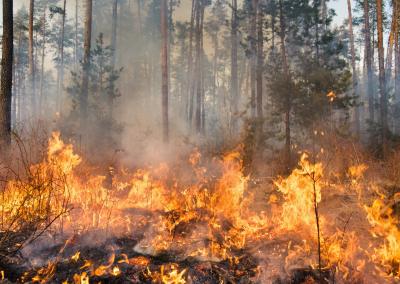US urges EU to delay anti-deforestation law
The United States has urged the European Union to postpone a ban on imports of deforestation-inducing products, saying it would harm American producers who cannot comply, the European Commission said on Thursday.
The EU law, due to come into force at the end of December, will ban the import of a wide range of goods - coffee, cocoa, soy, timber, palm oil, cattle, printing paper, rubber and so on. – if they are produced on land that has been deforested after December 2020.
The US call adds to concerns expressed by countries in South America, Asia and Africa, and within the EU itself, about the administrative burden the new law imposes on farmers and the forestry sector.
The EU is the second largest market for the consumption of these particular products after China.
Companies importing the commodities in question into the EU will be responsible for tracing their supply chains to prove that the commodities do not originate from deforested areas, based on geolocation and satellite data.
According to the Financial Times, US Commerce Secretary Gina Raimondo, Agriculture Secretary Tom Vilsack and Trade Representative Katherine Tai wrote to the European Commission at the end of May asking for a delay in the entry into force deadline.
They argued that the law, passed at the end of 2022, poses critical challenges for U.S. producers and asked for a delay in its implementation until these critical challenges are resolved.
„We can confirm that the letter has been received and, as always, we will respond in due course,“ an EC spokesman told AFP.
„We are working closely with all stakeholders to prepare for the entry into force of the law,– he said. The Commission is constantly monitoring the situation and is making every effort to ensure that all the conditions for a smooth implementation are met.“
In March, Virginijus Sinkevicius, the EC's Environment Commissioner, visited Paraguay, Bolivia and Ecuador to respond to criticism of the new law.
In response to complaints that the EU changes would be costly, particularly for smaller farms, the bloc offered technical and financial assistance to importers to bring their traceability systems up to the required level.
The following month, Mr Sinkevičius also visited Côte d'Ivoire, the world's largest producer of cocoa, to address similar concerns.
In the EU itself, agriculture ministers from some 20 member states, led by Austria and Finland, warned in April that the law would create new bureaucratic hurdles for the agricultural sector, risking to undermine investment and distort competition.
The law will require at least nine per cent of products shipped to the EU to be inspected in high-risk exporting countries, and a lower proportion in lower-risk countries.
Currently, in the absence of an agreed classification system, from the end of December, the EU will consider all countries to be „standard-risk“ countries, which will result in 3% of imports being checked.
According to the World Wide Fund for Nature (WWF), EU imports are responsible for 16% of the world's deforestation.











































































































